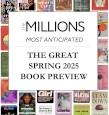“For a moment, it was as if Van Gogh’s Starry Night literally came to life right before my eyes.” In describing his first sight of fireflies, Reverend Sam D. Kim wastes no time demonstrating his gift for description and longtime habit of taking joy in the ordinary. The gorgeous visual serves as an introduction to A Holy Haunting: Why Faith Isn’t a Leap but a Series of Staggers from One Safe Place to Another, the 2024-2025 BookLife Prize Nonfiction winner.
Kim cofounded the 180 Church in Manhattan and was trained as an ethicist at Harvard. He lives in New York City with his wife and two sons, and is part of Harvard Catalyst, where he examines the inequities related to health, immigration, and social policies; Kim also holds the Lifelong Learning Fellowship at Yale Divinity School and Yale Medicine.
A Holy Haunting is the first book in the inspirational/spiritual category to be selected for the grand prize, which is handed out twice a year to exceptional works of fiction and nonfiction. While readers will notice the lush and lyrical writing first, what proves even more remarkable is its accessibility and resonance for nonbelievers.
A Holy Haunting provides the type of intimate, enriching reading experience that makes the book difficult to put down. The first section covers the theory of faith (“Spiritual Puberty”); the second demonstrates how faith is “often messy and tumultuous”; the third digs into the nitty-gritty of spiritual texts (“Is the New Testament reliable?”). Throughout the book, Kim pulls in a veritable cornucopia of literary and cultural references, including C.S. Lewis, John Bloom, Peter Kreeft, Ronald K. Tacelli, and David Brooks, as well as other notables in the field, to make his points. In one moment, Kim calls upon the wisdom of Solomon (“What has been will be again, what has been done will be done again; there is nothing new under the sun. Everything is meaningless!”) and the next, Kanye West (“I always find, I always find. I always find, something wrong. I’m so gifted at finding what I don’t like the most”), and his sharp wit shines forth in a work that is as funny as it is touching and wise.
Author Kelsey Osgood, who selected A Holy Haunting as a finalist, called it, “a generous book to believers and skeptics alike... a patient, thoughtful tour of the Christian faith landscape today” and the BookLife Prize critic’s report said, “A Holy Haunting eschews platitudes in favor of a multilayered conversation about the role of faith in today’s world.”
One of the things that may surprise spiritual skeptics is Kim’s ease with bridging science, psychology, and theology, as in discussing evolutionary creation, “a Christian perspective on the origins of life that challenges the idea that faith and science are in conflict.” And in coming to understand how science and theology can coexist and even thrive, Kim takes readers back to 600 BCE and then still further, demonstrating a formidable understanding not just of theology, philosophy, and science, but history, too.
Kim also exposes his own fears and hurts, his doubts, and his crises. “I wish someone had told me sooner that struggling with doubt is not apostasy; it is just human.... Faith isn’t always linear but is instead sinuous. Sometimes, it gets worse before it gets better. God is a great artist, and the Bible tells us He is painting a masterpiece, with us as His canvas. However, He isn’t finished yet. As a result, we might not be able to connect the dots in our lives right now, as they often only make sense in reverse.”
By sharing his journey, the author comes across as a warm confidant rather than a distant spiritual adviser, especially with his candid references to “overcoming the swamp of doubt and fear,” which he hopes “may offer solace to those navigating the darkest spiritual crisis they’ve ever known.”
Kim not only offers solace and hard-won wisdom but repeatedly references joy; his God is a loving god, one he wishes everyone to get to know on their own terms: “When we finally come to realize that this poignant longing is a holy haunting for the presence of God, everything changes. What was once unsettling becomes reassuring and comforting, and what was once a burden becomes a source of delight and joy.”
When asked what inspired him to write A Holy Haunting, Kim explains, “I have carefully avoided commercializing the gospel. I did not want to force, push, or sell the gospel as if it were a product; rather, I wanted to speak of Jesus as if he were a good friend I had just met for afternoon tea.”
He also urges other authors to “incorporate some lighthearted self-deprecation into your writing. When we avoid taking ourselves too seriously—especially when tackling serious topics—more readers are likely to connect with our message. This authenticity invites them to be more honest with themselves and others, fostering a transformative experience for both us and potentially the world around us.”
MaryJanice Davidson’s upcoming novel, The Reluctant Reaper, will be available in November 2025.








